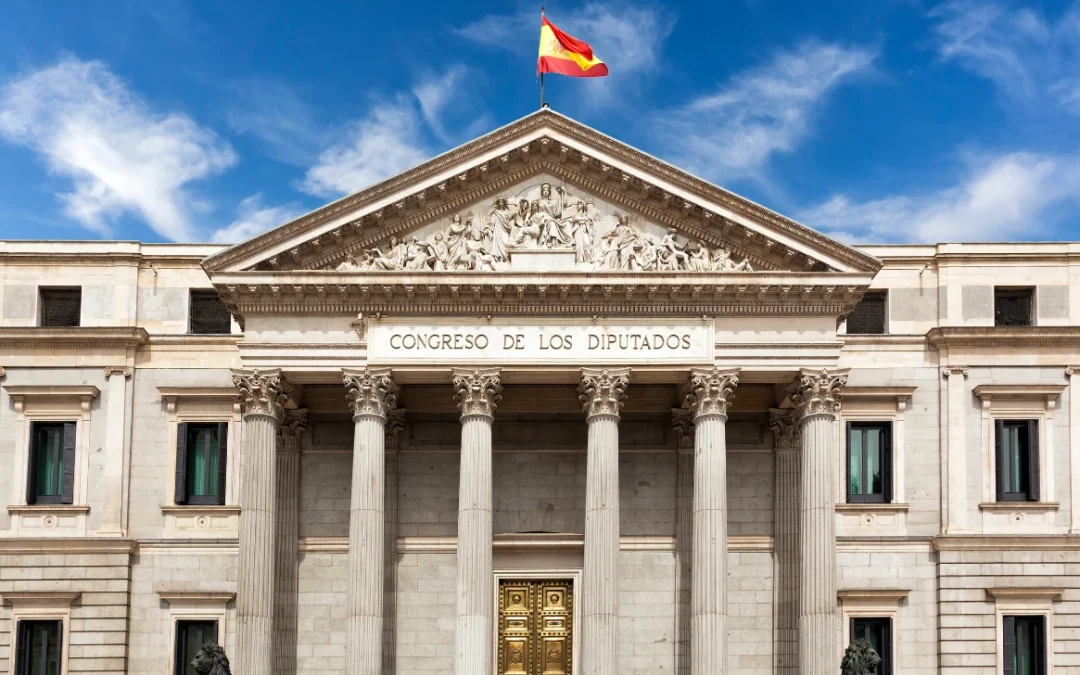The Impact of Spanish Elections: A Catalyst for Pro-Growth Tax Reforms
Spanish Prime Minister, Pedro Sánchez, surprises everyone by calling for a snap national election on July 23, just three weeks into the Spanish presidency of the Council of the European Union. These elections carry high stakes as they offer a crucial opportunity for Spain to implement pro-growth tax reforms at the national level, especially before the European Parliament elections. In this article, we will explore the impact of the Spanish elections on regional and national tax policies, as well as their potential consequences at the European level.
The Impact of the Spanish Elections at the Regional and National Levels
The decision to advance the general election earlier in the year follows the poor performance of the left-wing coalition government’s parties in the recent local and regional elections. At the regional level, the opposition People’s Party (PP) has gained enough votes to negotiate coalition governments in most regions where they haven’t secured outright majorities.
The regional tax policies implemented in previous years serve as an indication of what could happen after the general elections, both at the national and European Union (EU) levels, if the PP secures a majority. Spanish regions governed by the center-right party have embraced pro-growth tax reforms, which have elevated their position in the Spanish Regional Tax Competitiveness Index (RTCI).
The effectiveness of regional tax competition is evident, with several Spanish regions replicating the successful tax reforms implemented by Madrid and other leading regions. For example, in 2022, Castile and Leon climbed seven places in the RTCI rankings after reforming their inheritance tax. Similarly, Andalusia became the first region to reduce the top statutory inheritance tax rate to 49.6 percent, slightly below the rates in Germany and Switzerland.
These regions are focusing on repealing or reducing wealth and inheritance taxes that hinder entrepreneurial activity, savings, and employment. Instead, they aim to establish an individual income tax system that stimulates wages, employment, and labor mobility. This trend is expected to continue as more regions are likely to be governed by the People’s Party or coalition governments involving the party. This regional tax competition has prevented Spain from becoming a tax burden within Europe during Pedro Sánchez’s presidency.
However, at the national level, the recent tax policy reforms have significantly damaged Spain’s international tax competitiveness. The country has dropped from 26th to 34th place in the 2022 International Tax Competitiveness Index (ITCI) since 2020.
In recent years, Spain has introduced a financial transactions tax (FTT), a digital services tax (DST), and a special value-added tax (VAT) on sugary drinks. Furthermore, at the end of 2022, new taxes were approved, including a two-year windfall profit tax on banks and energy companies. However, these windfall taxes go beyond their intended purpose and have faced criticism from the sectors affected. Despite promising adjustments to align with the EU design, no amendments have been made. Although the EU-wide windfall tax, known as the “solidarity contribution tax,” is not without flaws, it poses fewer issues than the current windfall profit taxes.
These tax policies have significantly undermined Spain’s international tax competitiveness and will continue to do so unless the latest reforms are repealed. Alberto Núñez Feijóo, the opposition leader, has announced tax reforms aimed at attracting investment and positioning Spain as an ideal destination for companies. His plans include abolishing or reforming the windfall taxes and reviewing the wealth tax introduced by Sánchez last year. Feijóo also expresses concerns about Spain’s public debt and emphasizes the importance of cutting the budget deficit.
Opinion polls indicate that the People’s Party (PP) and Vox, Spain’s other right-wing party, have a comfortable margin to form a government. However, challenging negotiations between these two parties to establish regional governments may jeopardize their prospects in the July 23 elections. Nevertheless, a shift in government from left to center-right could bring about the much-needed tax reform overhaul in Spain. In addition to Feijóo’s proposed reforms, Spain should consider eliminating the FTT, DST, and wealth taxes altogether. To stimulate private investment and accelerate economic growth, Spain could explore measures such as full expensing for capital investment and a shift towards less detrimental consumption taxes by expanding the VAT tax base.
Implementing such tax reforms would have the potential to boost economic activity, promote private investment and employment, and attract highly skilled workers. It would enhance Spain’s domestic and international tax competitiveness.
The Impact of the Spanish General Election at the European Level
The Spanish elections will also influence tax policies at the European level, especially as Spain assumes its fifth rotating presidency of the Council of the EU on July 1st. Past instances of national elections occurring during a rotating presidency, like France in the first half of 2022, provide precedents for this situation.
As an impartial facilitator, the Spanish Presidency is expected to continue discussions on key issues addressed by the previous presidency, such as the “VAT in the Digital Age” package and the “UNSHELL” proposal to combat the misuse of shell entities for tax purposes. However, the perspective might shift. In June, Spain presented its tax-related priorities for the upcoming months, which include establishing a common minimum standard for corporate taxation across all Member States to combat tax evasion by large multinational corporations. Spain also aims to continue reforming fiscal rules to ensure transparency and flexibility in line with green and digital transitions.
If Sánchez is reelected and successfully forms a government, these priorities are likely to remain unchanged. However, specific proposals may receive greater attention. For instance, the UNSHELL proposal has gained significant interest and clear prioritization from the Commission as part of the ongoing fight against tax evasion. Commissioner Gentiloni has consistently emphasized the importance of making progress on this front.
A change in government, on the other hand, could create room for maneuvering in other areas, such as Own Resources. Historically, Sánchez has favored European-style public investment programs similar to the “Marshall Plan,” but he has not prioritized discussions on reimbursement methods for these programs.
Feijóo, on his part, has not provided many direct comments on EU Own Resources, likely catering to national audiences rather than European ones. However, his pro-growth tax reforms and emphasis on fiscal responsibility are likely to shape Spain’s approach at the European level. If Feijóo is elected, repaying European debt may become more significant, with increased focus on the Own Resources files. He has already formed a working group to handle Spain’s responsibilities during the EU Council presidency, but this is contingent on election results and potential coalitions.
Nevertheless, it is essential not to overstate the influence of national elections on European-level politics. While leadership may change, many discussions within the Council of the EU are conducted by civil servants based in Brussels who have been preparing for these moments for years. Consequently, the ongoing agenda is likely to remain largely unaffected by electoral dynamics.
However, national politics can divert Spain’s attention from its EU priorities, potentially causing certain issues to take precedence. The Council’s priorities are expected to be influenced by various needs, including the urgency of repaying the European debt. This possibility gains credibility with the recent visit of President Ursula von der Leyen and the College of Commissioners to Madrid on July 3rd. The advanced timing of this visit, avoiding the midst of the Spanish electoral campaign, could signal the Commission’s intention to emphasize the importance of progressing with the first and second baskets of Own Resources within the Council. These new Own Resources aim to create a stable revenue stream to finance the NextGeneration EU (NGEU) program, with Spain being one of the top recipients.
Given the likelihood of a political vacuum in Spain’s leadership, the Commission may seize the opportunity to steer discussions on the Own Resources files. These files should be addressed swiftly within the Council before the Union becomes consumed by the European Parliament election frenzy or faces resistance from less cooperative Member States during their presidencies.
In conclusion, the Spanish elections are taking place at a crucial time for national pro-growth tax reforms and the advancement of Own Resources and UNSHELL files at the European level. The outcome of the elections and the subsequent formation of the government will determine the direction of tax policies in Spain and their impact on the broader European context.

